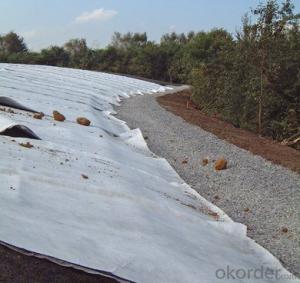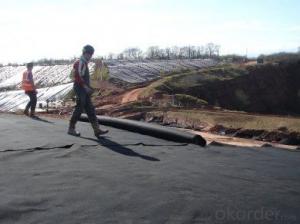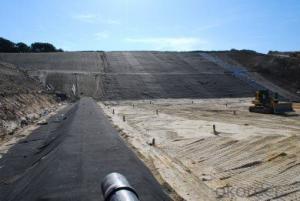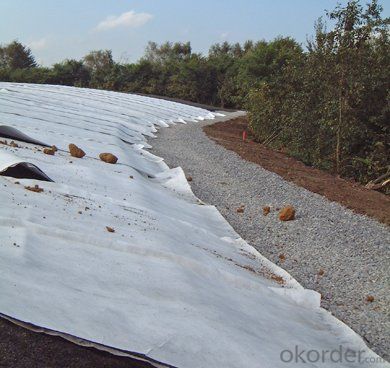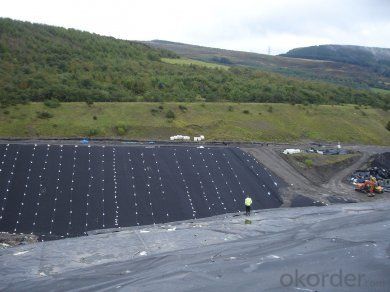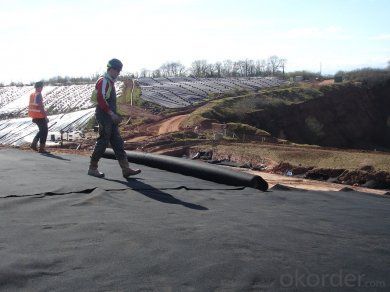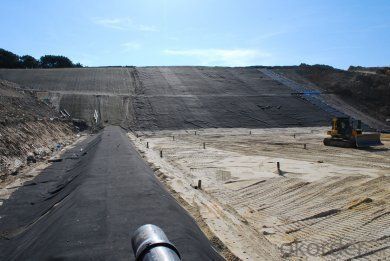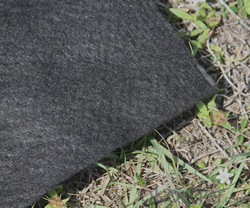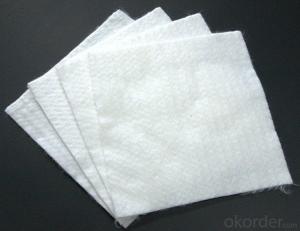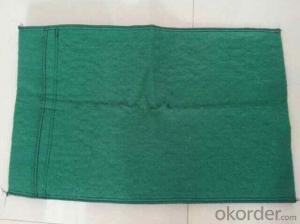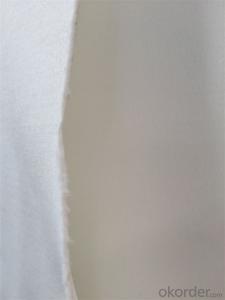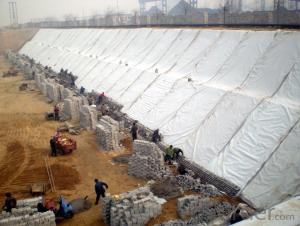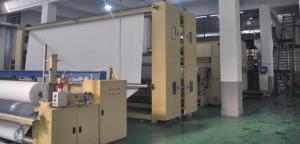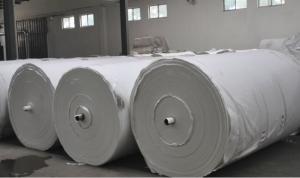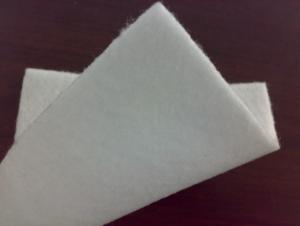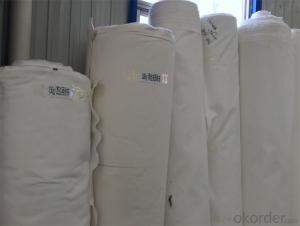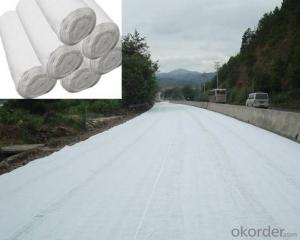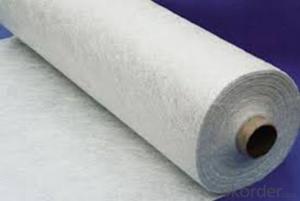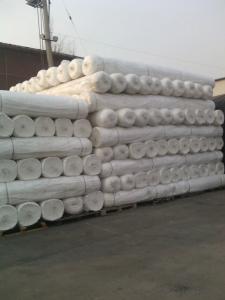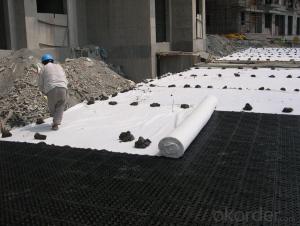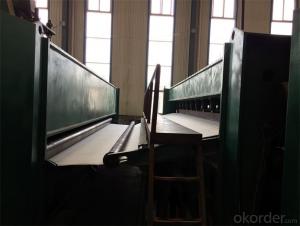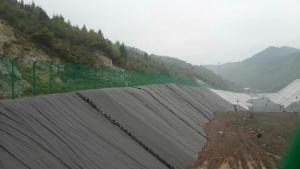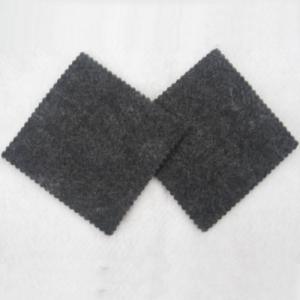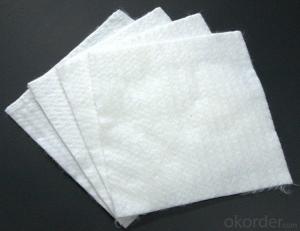Castorama Needle Punched Non-Woven Geotextile Fabric Materials
- Loading Port:
- China main port
- Payment Terms:
- TT OR LC
- Min Order Qty:
- 1000 m²
- Supply Capability:
- 500000 m²/month
OKorder Service Pledge
OKorder Financial Service
You Might Also Like
Specification
Non Woven Geotextile Introduction:
Nonwoven geotextiles are manufactured from the extrusion of polypropylene fibres which are then laid down on a manufacturing "bed" and then needle punched to entangle the fibres such that a dimensionally stable product is formed. Some additional thermal treatment is then applied to further improve the strength of the geotextile. Because of this manufacturing process non-woven geotextiles are generally best used in applications of drainage, filtration and protection
Environment friendly construction material.
Unit Weight of Continuous Filament Nonwoven Geotextile
100g/m2, 150g/m2, 200g/m2, 250g/m2, 300g/m2, 350g/m2, 400g/m2, 450g/m2, 500g/m2, 600g/m2, 800g/m2 or customerized
Tensile strength comparation between short filament geotextile and Continuous filament geotextile
The tensile strength of filament geotextile is higher than short filament geotextile.
Photos:
Packaging & Shipping
Packing: PLASTIC FILM INSIDE, AND WOVEN BAG OUTSIDE
Shipping: About 15 days after receipt the deposit
specifications
geotextile fabric
permeability,filtration,easy for construction
ISO and CE certificate
Good quality and competitive price
Our Service
Quality assurance
1.On a regular basis or as per your request,we entrust national testing agencies to conduct quality inspections
2. Strictly in accordance with the ISO9001-2008 international quality system standard,we monitor and manage the whole process throughout production,quality testing,and measurement to ensure product quality
3. For quality-related construction delay or substandard construction(except for damage or losses due to customer’s responsibility or irresistible natural disasters),we have refunding,replacement,and repair services.We will respond to customers’ feedbacks on quality issues within 24 hours.
After-sales service
1.In order to provide customers with comprehensive technical support,we will provide technical and other related information upon request in a timely manner.
2.In required,we will appoint specialized technicians to the construction site to give technical trainings to construction people,and offer technical guidance throughout the whole construction process.
3.For damage due to shipment and delivery,after we receive the complaint,we will check the issure through provided pictures and videos.If our responsibility is confirmed,we wil offer free replacement.
4.When the construction is completed,as your request,our technical staff may participate in the final acceptance.
FAQ:
Q: What kind of payments does jenor support?
A: T/T, L/C, Cash are accepted.
Q: Do you charge for the samples?
A: Accordeing to our company policy, the samples are free, we only charge the freight fee. And we will return the freight fee during the next order.
Q: Can you produce according to customers' design?
A: Sure, we are professional manufacturer, OEM and ODM are both welcome.
Q: Do you have other products?
A: Yes, please check the pictures:
- Q: Geotextile what is the law?
- Geotextile, also known as geotextile, it is made of synthetic fiber through acupuncture or woven from the permeability of geosynthetics. The American Society of Agricultural Engineers defines geotextiles as geotextiles or geosynthetics that exist between soils and pipelines, gages, or retaining walls that enhance water movement and impede soil movement. ASTM 4439 standard geotextile is defined as: a purely permeable geosynthetics to form textiles. Is used in soil, rock, soil or other geotechnical engineering related materials and acts as a component of a human-made project. Geotextile is a new type of building materials, raw materials are polyester, polypropylene, acrylic, nylon and other polymer polymer synthetic fiber. In accordance with the manufacturing method is divided into: there are two types of geotextile and non-woven geotextile. General engineering is mainly used non-woven geotextile. Geotextile with filter, filter, isolation, reinforcement, protection, sealing and other functions.
- Q: Can geotextiles be used for soil reinforcement in embankments?
- Yes, geotextiles can be used for soil reinforcement in embankments. Geotextiles are often used in civil engineering projects to enhance soil stability and prevent erosion. In embankments, they can be placed between soil layers to distribute loads, improve drainage, and increase the overall strength and stability of the structure.
- Q: What are the different installation guidelines for geotextiles in reinforcement projects?
- The installation guidelines for geotextiles in reinforcement projects typically involve the following steps: 1. Site Preparation: Clear the construction area of any vegetation, debris, or loose soil. Level the ground and remove any protrusions or sharp objects that could damage the geotextile. 2. Geotextile Placement: Unroll the geotextile over the prepared area, ensuring it covers the entire project site. Overlaps between adjacent rolls should be at least 1 to 2 feet to provide proper continuity. 3. Anchoring: Secure the geotextile at the edges using anchor trenches, stakes, or other appropriate methods to prevent movement during installation or in the long term. 4. Jointing: Overlap adjacent geotextile panels by a minimum of 1 to 2 feet, depending on the project requirements. Secure the overlap with appropriate fasteners or adhesives to ensure proper functioning. 5. Protection: If necessary, cover the geotextile with a protective layer, such as a layer of soil or aggregate, to shield it from potential damage during construction activities or exposure to UV radiation. 6. Compaction: If the project involves soil stabilization or reinforcement, follow the recommended compaction procedures to ensure proper integration of the geotextile with the surrounding soil or aggregate. 7. Quality Control: Regularly inspect the geotextile installation to ensure that it is properly placed, free of damage, and functioning as intended. Any identified issues should be addressed promptly. It is important to note that specific installation guidelines may vary depending on the project type, site conditions, and the type of geotextile being used. It is recommended to consult the manufacturer's recommendations and seek professional guidance to ensure proper installation.
- Q: How do geotextiles affect soil consolidation?
- Geotextiles have a positive impact on soil consolidation as they provide reinforcement and stabilization. By acting as a barrier, they prevent the mixing of different soil layers, reducing the potential for settlement and increasing the overall strength of the soil. This consolidation is achieved through the interlocking of geotextile fibers with the soil particles, enhancing the load-bearing capacity and preventing the loss of fine particles.
- Q: What are the benefits of using geotextiles?
- Geotextiles offer numerous benefits such as erosion control, soil stabilization, and drainage improvement. They help prevent soil erosion by acting as a barrier and holding soil particles in place. Geotextiles also stabilize the soil by distributing load forces, thus enhancing the strength and durability of structures. Additionally, they promote efficient drainage, allowing water to pass through while retaining soil particles. Overall, geotextiles provide cost-effective solutions for various civil engineering and environmental applications.
- Q: What are the cost implications of using geotextiles?
- The cost implications of using geotextiles can vary depending on several factors. Initially, the upfront cost of geotextiles may be higher compared to traditional materials. However, geotextiles can provide long-term cost savings by extending the lifespan of infrastructure and reducing maintenance and repair expenses. Additionally, geotextiles can eliminate the need for costly excavation and disposal of contaminated soil. Considering these factors, while geotextiles may have higher initial costs, they can result in overall savings throughout the lifespan of a project.
- Q: Are geotextiles commonly used in landfills for leachate collection?
- Yes, geotextiles are commonly used in landfills for leachate collection.
- Q: How to apply the geotextile of the retaining wall filter
- Our manufacturer, a professional construction team
- Q: What are the different geotextile performance properties?
- Some of the different geotextile performance properties include filtration, separation, drainage, erosion control, reinforcement, and cushioning.
- Q: How do geotextiles help in stabilizing slopes?
- Geotextiles help in stabilizing slopes by acting as a barrier that prevents soil erosion, while still allowing water to drain through. They provide reinforcement to the soil, increasing its stability and reducing the chances of slope failure. Geotextiles also aid in vegetation growth on slopes, which further contributes to slope stability.
Send your message to us
Castorama Needle Punched Non-Woven Geotextile Fabric Materials
- Loading Port:
- China main port
- Payment Terms:
- TT OR LC
- Min Order Qty:
- 1000 m²
- Supply Capability:
- 500000 m²/month
OKorder Service Pledge
OKorder Financial Service
Similar products
Hot products
Hot Searches
Related keywords
